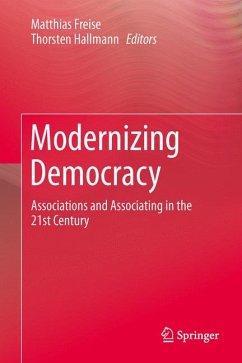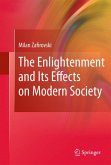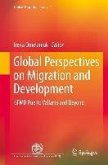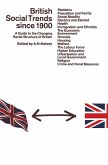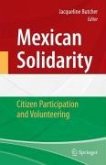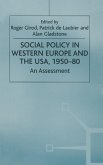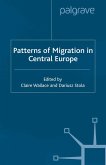Modernizing Democracy brings together scholars focusing the role of associations and associating in contemporary societies. Organizations and associations have been identified as the "meso level of society" and as the "basic elements of democracy". They are important providers of welfare services and play an important role between the individual and political spheres.
In recent years the environment of associations and associating has changed dramatically. Individualization, commercialization and globalization are challenging both democracy and the capability of associations to fulfill the functions attributed to them by social sciences. This change provides the central question of the volume: Is being part of an organization or association becoming an outdated model? And do associations still have the capacity of modernizing societies or are they just outdated remnants of post-democracy?
The contributions to Modernizing Democracy are organized into Studying Associations and Associating in the 21st Century: Theoretical and methodological considerations, Associating in times of flux and Associations and the Challenge of Capitalist Development.
The book will be attractive to third sector researchers as well as a broader academic community of political scientists, sociologists, economists, legal scientists and related disciplines.
In recent years the environment of associations and associating has changed dramatically. Individualization, commercialization and globalization are challenging both democracy and the capability of associations to fulfill the functions attributed to them by social sciences. This change provides the central question of the volume: Is being part of an organization or association becoming an outdated model? And do associations still have the capacity of modernizing societies or are they just outdated remnants of post-democracy?
The contributions to Modernizing Democracy are organized into Studying Associations and Associating in the 21st Century: Theoretical and methodological considerations, Associating in times of flux and Associations and the Challenge of Capitalist Development.
The book will be attractive to third sector researchers as well as a broader academic community of political scientists, sociologists, economists, legal scientists and related disciplines.
Dieser Download kann aus rechtlichen Gründen nur mit Rechnungsadresse in A, B, BG, CY, CZ, D, DK, EW, E, FIN, F, GR, HR, H, IRL, I, LT, L, LR, M, NL, PL, P, R, S, SLO, SK ausgeliefert werden.

